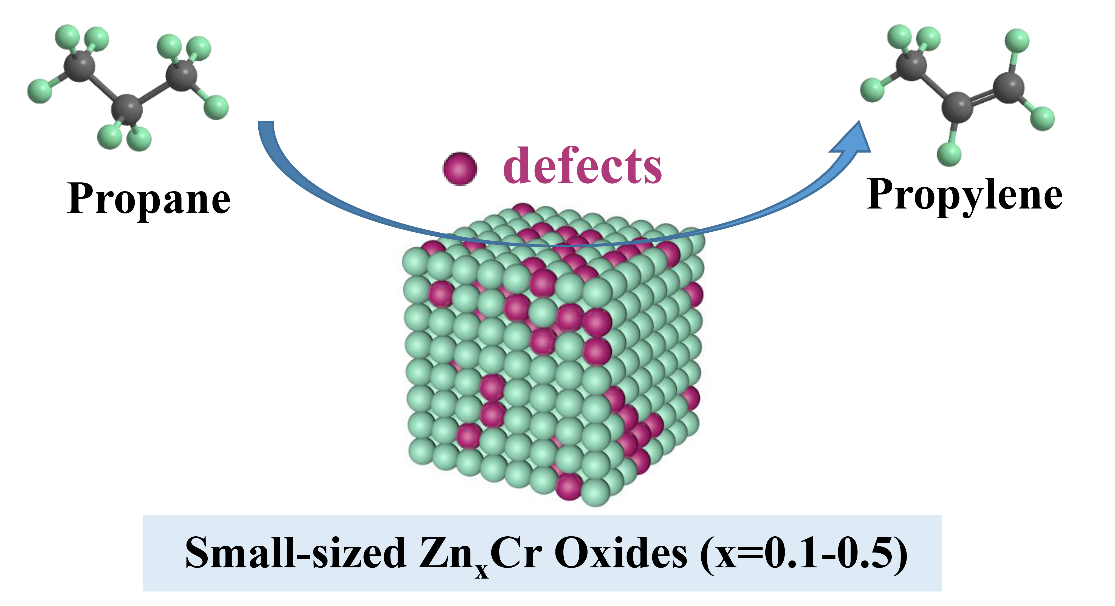Researchers discover propane dehydrogenation to propylene performance of Cr2O3 can be enhanced by addingZn
Author: Time:2021-01-26 Click:
Propylene is an important and basic building block in the chemical industry. Currently, propylene is mainly manufactured by steam cracking and fluid catalytic cracking (FCC). With the rapidly growing demand for propylene and the availability of large reserves of shale gas, direct propane dehydrogenation to propylene (PDH) becomes an attractive alternative process for production of propylene. Cr-based catalysts have been extensively studied for PDH reaction. PDH reaction requires high temperature condition for high propane conversion but the side reactions increase accordingly. Therefore, it is important to find promoters to improve the activity while maintaining high selectivity.
Recently, a research group led by Prof. Wenliang Zhu and Prof. Zhongmin Liu from theDalian Institute of Chemical Physicsof the Chinese Academy of Sciences discovered that PDH performance of Cr2O3could be significantly enhanced by addition of Zn.

Cr2O3promoted with zinc remarkably enhances its catalytic activity in PDH reaction.Furthermore, the activity is strongly dependent on the Zn/Cr molar ratio and thecatalystwith Zn/Cr = 0.3 gives a highest propane conversion and propylene selectivity among the studied catalysts (Zn/Cr ratio ranging 0 - 0.5). Characterizations indicate that addition of zinc to Cr2O3leads toformation of a spinel phase and reduction of the particle size, and hence forms more defect sites.This provides a new strategy for PDH catalyst designing.
This work was published inCatalysis Science & Technology. (Text by Liu Jie)
. Enhanced propane dehydrogenation to propylene over zinc-promoted chromium catalystsJie Liu, Yong Liu, Youming Ni, Hongchao Liu, Wenliang Zhu, Zhongmin Liu *, Catalysis Science & Technology, 10(6):1739-1746, 2020.